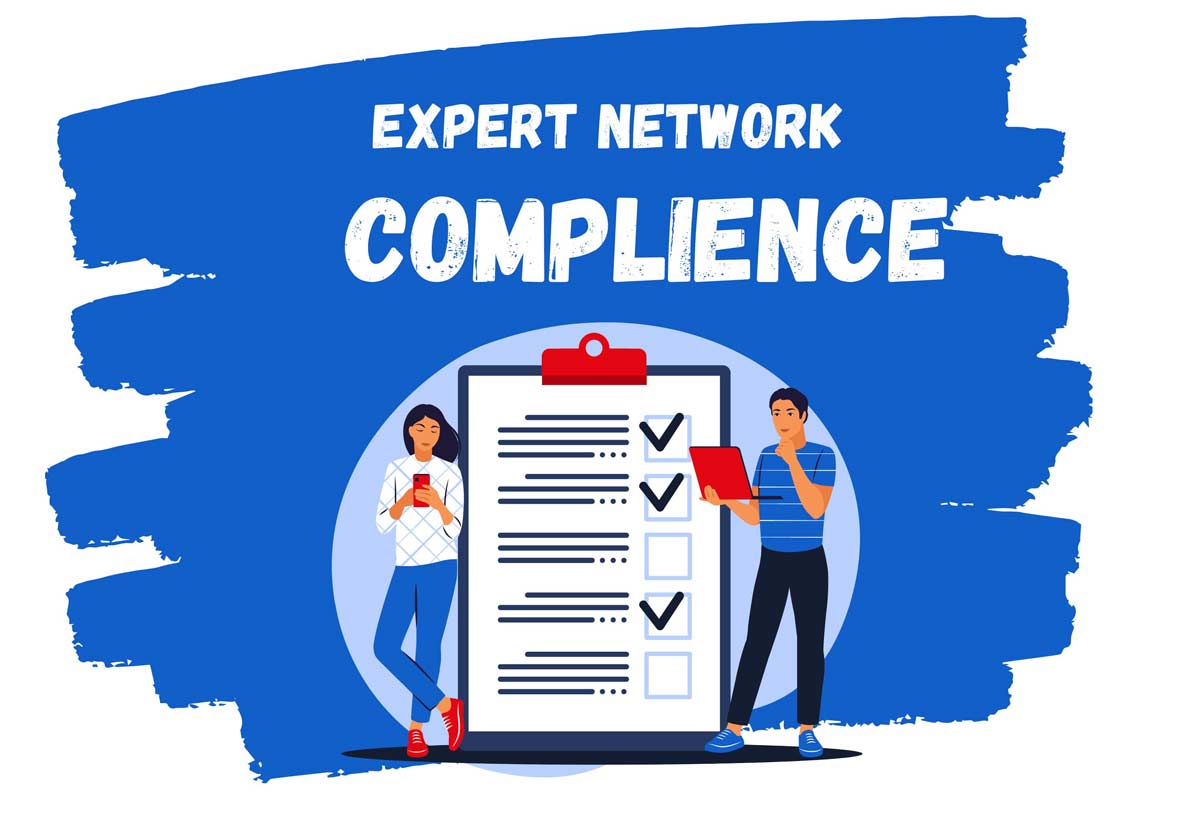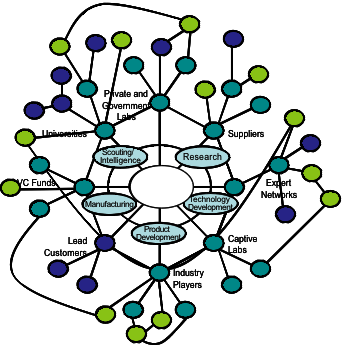What Are The Legal Regulations Surrounding Expert Networks?
What are the legal regulations surrounding expert networks? Let’s dive into this intriguing topic and find out what it entails. Expert networks have become increasingly popular in various industries, providing access to specialized knowledge and insights. But what about the legal side of things? In this article, we’ll unravel the legal regulations governing expert networks to give you a better understanding of how they operate within the bounds of the law.
Expert networks are platforms that connect professionals with individuals seeking their expertise. These networks facilitate the exchange of knowledge and advice, allowing businesses and individuals to tap into the insights of industry experts. However, to ensure fair and ethical practices, there are legal regulations in place that govern the operations of these networks. Understanding these regulations is crucial for both experts and clients who rely on these platforms.
When it comes to expert networks, legal compliance is of utmost importance. These networks must adhere to laws and regulations related to data protection, confidentiality, and insider trading. By abiding by these rules, expert networks can ensure the privacy and security of their users’ information, as well as maintaining a fair and transparent environment for knowledge sharing. So let’s delve deeper into the legal landscape surrounding expert networks and explore the regulations that shape their operations.

The Legal Regulations Surrounding Expert Networks: Navigating the Complexities
Expert networks have become an integral part of the business landscape, providing valuable insights and knowledge to professionals across various industries. However, with their rise in popularity, there has been a growing need for legal regulations surrounding these networks. In this article, we will delve into the intricacies of the legal framework governing expert networks and explore the key considerations for businesses and individuals engaging with them.
The Definition and Functioning of Expert Networks
Expert networks are platforms that connect industry experts with professionals seeking their knowledge and expertise. These networks facilitate information exchange, allowing businesses to tap into specialized insights for decision-making processes. Typically, expert networks operate through a matchmaking process, where they identify suitable experts based on the clients’ specific requirements and connect them through consultations, interviews, or other forms of collaboration.
While expert networks play a crucial role in facilitating knowledge-sharing, it is essential to establish legal regulations to ensure ethical practices, privacy protection, and adherence to industry standards. These regulations help maintain the integrity of the information exchanged, safeguard the interests of both experts and clients, and prevent any potential misuse or unethical conduct.
The legal regulations surrounding expert networks vary across jurisdictions, and it is vital for businesses and individuals to be well-informed about the rules and obligations they must comply with. Let’s explore some of the key aspects of these regulations in more detail.
Disclosure and Compliance Obligations
One of the fundamental aspects of legal regulations surrounding expert networks is the requirement for transparency and disclosure. Expert networks are obligated to disclose information about their experts’ qualifications, experience, and potential conflicts of interest. This ensures that clients have access to accurate and reliable information, enabling them to make informed decisions based on the experts’ credentials.
Additionally, expert networks must comply with data privacy and protection regulations to safeguard the sensitive information shared during consultations or collaborations. Compliance with these regulations involves implementing adequate security measures to prevent unauthorized access, unauthorized disclosure, or misuse of confidential information. By ensuring compliance, expert networks build trust and credibility among their clients and experts.
It is also crucial for the experts themselves to comply with the legal regulations surrounding expert networks. They must uphold ethical standards, maintain confidentiality, avoid conflicts of interest, and provide accurate and unbiased information. Failure to comply with these regulations can lead to legal consequences and reputational damage for both the experts and the expert network facilitating their services.
Regulatory Framework and Industry Standards
The legal regulations surrounding expert networks are often influenced by the specific industry or sector in which they operate. Different sectors may have their own regulatory bodies or industry-specific guidelines to ensure compliance and ethical practices. For example, the financial sector may have additional regulations and compliance requirements due to the sensitive nature of the information involved.
It is essential for both expert networks and their clients to be aware of the industry-specific legal frameworks and standards to navigate the complexities effectively. Expert networks must stay updated with any changes in the regulations and adapt their practices accordingly. Likewise, clients should ensure they engage with expert networks that have a clear understanding of the regulatory landscape in their industry.
In addition to industry-specific regulations, expert networks may also need to comply with broader legal frameworks, such as intellectual property rights, confidentiality agreements, and anti-money laundering regulations. Failure to adhere to these regulations can have significant legal and financial implications for all parties involved.
Ensuring Ethical Conduct and Avoiding Conflicts of Interest
One of the critical aspects of the legal regulations surrounding expert networks is the emphasis on ethical conduct and the avoidance of conflicts of interest. Expert networks should have measures in place to prevent any potential bias or unethical behavior among their experts. This involves implementing strict vetting processes, monitoring expert engagements, and addressing any conflicts of interest promptly.
Experts themselves should exercise professionalism, integrity, and objectivity when providing their expertise through these networks. They should disclose any potential conflicts of interest and refrain from providing biased or misleading information. By adhering to ethical standards, expert networks and their experts contribute to the integrity and reputation of the industry as a whole.
While legal regulations play a crucial role in maintaining ethical conduct, it is equally important for businesses and individuals engaging with expert networks to conduct due diligence. This includes thoroughly researching the expert networks they intend to utilize, verifying the experts’ credentials, and seeking legal counsel when necessary.
Benefits and Challenges Associated with Legal Regulations
Now that we have explored the legal regulations surrounding expert networks, it is essential to understand the benefits and challenges associated with these regulations. The implementation of legal frameworks provides several advantages, including increased transparency, enhanced trust, and better protection for both experts and clients.
By mandating disclosure and compliance obligations, legal regulations reduce the risk of misinformation and fraudulent practices. They also establish a level playing field, ensuring that experts are evaluated based on their qualifications and expertise rather than personal connections or biases.
However, legal regulations can also present challenges, particularly in a globalized business landscape. The varying regulations across jurisdictions can create complexities for businesses operating internationally. Additionally, staying updated with the ever-evolving legal landscape requires a dedicated effort from both expert networks and their clients.
Navigating the Legal Landscape: Best Practices and Tips
To navigate the legal regulations surrounding expert networks effectively, businesses and individuals should consider the following best practices and tips:
- Conduct thorough due diligence when selecting an expert network, ensuring they have a strong track record of compliance and adherence to legal regulations.
- Seek legal counsel to understand the specific legal obligations and compliance requirements in your industry or jurisdiction.
- Implement robust confidentiality agreements and data protection measures to safeguard sensitive information exchanged during consultations or collaborations.
- Regularly review and update internal policies to align with any changes in the legal landscape.
- Train employees and experts on the legal regulations, ethical standards, and confidentiality protocols to ensure compliance.
- Maintain open lines of communication with expert networks, addressing any concerns or potential conflicts of interest promptly.
By following these best practices, businesses and individuals can navigate the legal landscape surrounding expert networks with confidence, ensuring ethical conduct, and maximizing the benefits derived from these valuable platforms.
The Future of Legal Regulations Surrounding Expert Networks: Embracing a Proactive Approach
The legal regulations surrounding expert networks are continually evolving to keep pace with the ever-changing business environment. As the use of expert networks becomes more prevalent and the importance of accurate and reliable information grows, it is likely that the legal frameworks governing these networks will become more robust.
Industry-specific regulations may become more stringent, particularly in sectors where sensitive information is exchanged. Privacy and data protection regulations may also see significant developments as technology advances and new challenges arise.
To stay ahead of the regulatory landscape, businesses and individuals should adopt a proactive approach. This involves staying informed about any changes in the legal regulations, actively participating in industry discussions and forums, and collaborating with legal experts to assess the impact of these regulations on their operations.
By embracing a proactive approach, businesses and individuals can adapt to the evolving legal landscape surrounding expert networks and continue to leverage the valuable insights offered by these platforms.
Key Takeaways: What are the legal regulations surrounding expert networks?
- Expert networks are subject to legal regulations to ensure compliance and protect against insider trading.
- Regulations vary across jurisdictions and may include registration, licensing, and disclosure requirements.
- Experts and clients must adhere to stringent confidentiality agreements to ensure the integrity of information shared.
- Legal obligations extend to both the expert network providers and the individuals utilizing their services.
- Penalties for non-compliance can be severe, including fines and legal consequences.
Frequently Asked Questions
Welcome to our Frequently Asked Questions section on the legal regulations surrounding expert networks. Here, you’ll find answers to common questions related to the laws and guidelines governing the use of expert networks.
1. How do expert networks comply with legal regulations?
Expert networks must comply with various legal regulations to ensure they operate ethically and within the bounds of the law. This includes adhering to rules on client confidentiality, insider trading, and potential conflicts of interest.
Additionally, expert networks need to establish robust compliance programs, conduct thorough due diligence on their network members, and ensure information shared with clients is accurate and reliable. Compliance with these regulations helps maintain trust and transparency in the use of expert networks.
2. Are there any restrictions on the types of information expert networks can provide?
While expert networks can provide valuable industry insights, there are certain restrictions on the types of information they can share. For example, expert networks are prohibited from facilitating or engaging in insider trading activities. They must ensure that the information being shared is based on publicly available data or the expertise of their network members, rather than non-public, material, or confidential information.
It is crucial for expert networks to have measures in place to prevent the misuse of information, prevent conflicts of interest, and maintain the integrity of the services they offer.
3. How do legal regulations protect the privacy of expert network members?
Legal regulations prioritize the privacy and confidentiality of expert network members. These regulations require expert networks to implement data protection measures and safeguard the personal information of their network members. This includes following established guidelines for data storage, handling, and sharing.
Expert networks are also expected to obtain necessary consents and permissions from their network members before disclosing any personal information to clients. By complying with these regulations, expert networks can ensure that the privacy of their members is respected and protected.
4. What are the consequences for non-compliance with legal regulations?
Non-compliance with legal regulations surrounding expert networks can have severe consequences. Regulatory bodies may impose fines, penalties, or even legal actions against expert networks that fail to comply with the required standards and rules. These consequences can significantly damage the reputation and trustworthiness of the expert network, potentially leading to loss of clients and business opportunities.
It is crucial for expert networks to stay updated on the latest legal regulations, maintain robust compliance programs, and regularly conduct internal audits to ensure adherence to these regulations.
5. Are legal regulations regarding expert networks consistent across different countries?
Legal regulations regarding expert networks can vary across different countries and jurisdictions. While some core principles, such as client confidentiality and ethical conduct, may remain consistent, the specific laws and guidelines governing the use of expert networks can differ from one country to another.
It is essential for expert networks to understand and comply with the legal regulations in each jurisdiction they operate in. This includes staying informed about any changes or updates to the regulations to ensure continued compliance and successful operations in different markets.
Expert Networks explained in under 3 minutes!
Summary
Expert networks are companies that connect investors with professionals for information and advice. These networks need to comply with legal regulations to protect against conflicts of interest, insider trading, and the improper use of confidential information. Laws like the Securities and Exchange Act, the Investment Advisers Act, and the Society of Corporate Secretaries and Governance Professionals’ Code of Conduct help ensure the integrity and transparency of expert networks. By following these regulations, expert networks can operate responsibly and provide valuable insights to investors.
However, the legal landscape surrounding expert networks is complex and evolving. Regulations can vary by country and can change over time. It is essential for expert networks and investors to stay informed about the latest legal requirements to avoid any legal issues and maintain trust in the financial markets. Compliance with these regulations ultimately benefits both the investors and the professionals by fostering a fair and reliable investment environment.


